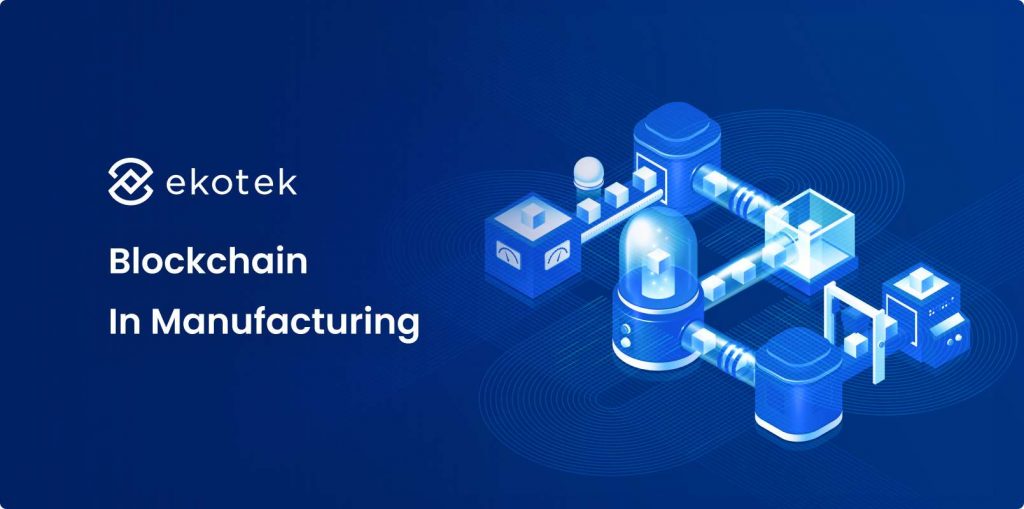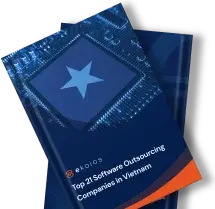Introduction
Global manufacturing is under immense pressure: complex supply chains, rising compliance demands, counterfeit risks, and the constant need for efficiency. Traditional systems often fall short in providing the transparency and trust businesses require. This is where blockchain in manufacturing is emerging as a game-changer. By delivering real-time visibility, tamper-proof records, and automated processes, blockchain empowers manufacturers to strengthen supply chain resilience, ensure compliance, and boost production efficiency.
In this article, we examine why blockchain is becoming a strategic priority for modern manufacturers, highlight real-world use cases, and share actionable insights for organizations considering adoption.
Understanding Blockchain in Manufacturing
- Decentralization: No single point of control or failure.
- Immutability: Historical data cannot be tampered with.
- Transparency: All stakeholders access the same, verified information.
- Security: Cryptographic methods safeguard critical data.
Blockchain technology, manufacturing solutions, and decentralized supply chain are all essential topics for organizations interested in deepening their understanding of this landscape.
Why Blockchain is Gaining Momentum in Manufacturing
Manufacturers are turning to blockchain not just for innovation, but to solve urgent business challenges:
-
Supply chain visibility: Globalized networks create blind spots. According to Deloitte, 62% of executives cite poor visibility as their biggest supply chain risk. Blockchain enables end-to-end tracking, from raw materials to final delivery.
- Counterfeit and fraud prevention: The OECD estimates counterfeit goods cost the global economy $500B annually. Blockchain provides tamper-proof records to verify authenticity and protect brand reputation.
- Regulatory compliance: Industries like pharma and food face strict traceability laws (FDA, EU FMD). Immutable blockchain records simplify audits and reduce the risk of non-compliance penalties.
- Customer expectations: Modern buyers demand proof of ethical sourcing and product origin. A PwC survey found 73% of consumers are willing to pay more for products with verified sustainability data, something blockchain makes possible.
- Integration with industry 4.0: As AI, IoT, and robotics become central to smart factories, blockchain ensures secure, transparent data exchange across automated systems.
⭐️ Discover how digital transformation in manufacturing can give your business a competitive edge
Enhancing Manufacturing Efficiency with Blockchain
 Real-time insights for smarter decisions
Real-time insights for smarter decisions
Data captured directly from IoT sensors and production equipment is stored on a secure blockchain ledger, creating a single source of truth. With predictive analytics, manufacturers can anticipate equipment failures, minimize downtime, and optimize resource allocation across multiple facilities.
Streamlined operations with less paperwork
Manual records and repetitive approvals slow down processes. Blockchain digitizes compliance, reporting, and transactions, while smart contracts automatically trigger actions such as maintenance, supplier payments, or inventory updates—freeing staff from administrative overload.
Consistent quality and faster response to issues
Every stage of production, from raw materials to finished goods, can be logged on blockchain. If a parameter drifts outside tolerance, automated alerts notify operators instantly, ensuring issues are fixed before they escalate into costly defects or recalls.
Faster and more accurate recalls
When product safety is at stake, manufacturers must act quickly. Blockchain provides instant access to batch data, making recalls faster, more precise, and less disruptive.
For example, Walmart’s blockchain initiative reduced the time needed to trace food origins from 7 days to 2.2 seconds.
Enhanced supplier collaboration
With multiple suppliers contributing to production, miscommunication is common. Blockchain offers a shared, immutable record of certifications, delivery milestones, and contract terms. This “single source of truth” reduces disputes, accelerates onboarding, and builds long-term trust with partners.
Stronger protection against counterfeits
Counterfeit products pose serious risks to safety, compliance, and brand reputation. Blockchain enables manufacturers to assign each item a verifiable digital identity, making provenance and authenticity transparent across the entire value chain.
Case in point: Ekotek developed a Digital Authenticity solution for a premium beverage brand by combining blockchain with NFC technology. Each product carries a unique digital tag linked to an immutable blockchain record, allowing customers to verify authenticity via smartphone scans. Businesses, meanwhile, gain access to an admin dashboard for product data management and can issue ownership certificates to enhance customer trust.
While built for F&B, this model can be applied to industries such as electronics, fashion, pharmaceuticals, and automotive parts to fight counterfeiting and reinforce brand value.
⭐️ Dive into Ekotek’s blockchain solution for product authenticity
Improved cybersecurity for production data
Cyberattacks against manufacturers are rising sharply. Blockchain’s decentralized architecture makes it harder for attackers to tamper with or steal sensitive production data, ensuring operations remain secure and reliable even in the face of growing digital threats.
Key Use Cases of Blockchain in Manufacturing
Raw Material Provenance and Ethical Sourcing
Ensuring materials come from responsible, conflict-free sources is a growing priority. Blockchain enables manufacturers to trace every shipment back to its origin with tamper-proof records.
Ford has piloted blockchain to verify cobalt sourcing for EV batteries, ensuring compliance with ethical standards and avoiding reputational risks.
⭐️ See what digital transformation means for the future of retail
Production Process Monitoring
Every step of the manufacturing line, from machining to assembly. can be logged on blockchain. This creates an immutable timeline of activities, helping identify bottlenecks or deviations.
BMW has explored blockchain to track components across production stages, ensuring both quality consistency and operational efficiency.
Equipment Lifecycle and Predictive Maintenance
Manufacturers register machinery and spare parts as digital assets on a blockchain. IoT sensors feed performance and usage data directly to the ledger. This creates a permanent history of operating conditions, service events, and part replacements, supporting maintenance scheduling and machine lifecycle management.
Warranty and After-Sales Service Management
Products can be issued with a blockchain-based “digital passport” that records ownership transfers, repairs, and warranty claims. Service centers update the ledger each time maintenance is performed. This ensures manufacturers, resellers, and customers all reference the same trusted product history.
Collaborative Manufacturing Networks
When multiple suppliers and subcontractors contribute to a product, blockchain acts as the backbone of a shared digital workspace. Purchase orders, design approvals, compliance certificates, and delivery updates are uploaded to the ledger. All parties operate from a synchronized source of truth, reducing miscommunication and delays.
Blockchain Integration and Implementation in manufacturing
 Assess Business Needs and Use Cases
Assess Business Needs and Use Cases
Before diving into implementation, manufacturers should identify the areas where blockchain delivers the most impact. This could be supply chain traceability, compliance automation, or equipment lifecycle management. Start with a pilot use case that addresses a clear pain point and provides measurable ROI.
Ensure System Compatibility and Integration
Blockchain rarely replaces existing ERP, MES, or SCM systems; instead, it integrates with them. APIs and middleware enable secure data exchange between blockchain platforms and legacy systems. Manufacturers should evaluate integration readiness and ensure that critical data sources (IoT, quality management, procurement) can connect seamlessly.
Choose the Right Blockchain Platform
Not all blockchains are created equal. Public networks offer transparency but may raise security and scalability concerns, while private/consortium blockchains provide greater control and compliance. Manufacturers should select platforms that support enterprise-grade performance, interoperability, and regulatory requirements.
⭐️ Explore different IT outsourcing models to find the best approach for scaling your manufacturing projects efficiently
Establish Governance and Standards
A successful blockchain network depends on clear governance. Manufacturers must define who can join the network, who validates transactions, and how data is shared. Industry standards and consortiums (e.g., BiTA, MOBI) can accelerate adoption by aligning processes across multiple stakeholders.
Address Security and Compliance Early
Since manufacturing involves sensitive intellectual property and regulatory oversight, security cannot be an afterthought. Implement role-based access controls, encryption protocols, and compliance frameworks (ISO, NIST). This ensures data integrity while meeting regulatory demands across different regions.
Build Skills and Change Management Programs
Blockchain requires new capabilities beyond IT, supply chain managers, quality assurance teams, and procurement officers must be trained to use the system effectively. Internal training programs and external partnerships can close the skills gap and reduce resistance to change.
Scale from Pilot to Enterprise Deployment
Start small, validate results, and then expand. Many companies begin with a single product line or supplier group, then scale to multi-site and cross-border operations. Success depends on setting clear KPIs, such as reduced lead times, lower audit costs, or fewer recalls, and measuring them continuously.
⭐️ Learn how our blockchain development services can help you build secure solutions tailored for manufacturing
Challenges and Considerations in Adopting Blockchain in manufacturing
Technical and Organizational Barriers
Most manufacturers rely on legacy ERP, MES, or SCM systems that were not built for blockchain integration. Connecting these systems requires middleware, data migration, and significant IT planning. A lack of standardized data formats across suppliers can also slow down interoperability.
Additionally, initial setup costs and the complexity of change management may delay ROI if the project is not scoped carefully.
Regulatory and Legal Uncertainty
Blockchain often operates across borders, where data protection laws, trade regulations, and compliance requirements differ. Manufacturers must also navigate unclear legal definitions around smart contracts, digital agreements, and data governance. This creates uncertainty in long-term adoption, especially for global supply chains that need consistent regulatory alignment.
Human Factors: Skills Gap and Resistance to Change
Even the best technology fails without people to operate and trust it. Many employees hesitate to adopt blockchain due to lack of awareness or fear of job disruption. At the same time, blockchain expertise is still scarce in manufacturing, forcing companies to invest in training or rely on external specialists. Without strong change management, adoption can stall before it delivers value.
Future Trends and Opportunities of blockchain in manufacturing

-
Expanding Role of Blockchain in Industry 4.0
-
Blockchain acts as a secure data backbone connecting IoT, AI, and robotics.
-
Enables trusted machine-to-machine communication and predictive analytics.
-
Supports the evolution of smart factories that are autonomous and self-optimizing.
-
-
Blockchain and Sustainable Manufacturing
-
Provides transparent reporting on energy use, emissions, and waste.
-
Helps manufacturers meet environmental regulations and ESG requirements.
-
Facilitates circular economy models by tracking material lifecycles for recycling and reuse.
-
Builds customer trust by offering verifiable proof of sustainability.
-
-
Evolving Standards and Collaborative Platforms
-
Industry consortia are developing interoperability standards for cross-platform collaboration.
-
Shared blockchain ecosystems will connect manufacturers, suppliers, and regulators.
-
Standardization will reduce adoption barriers and unlock large-scale efficiencies.
-
⭐️ Stay ahead with the best blockchain development trends transforming manufacturing today
Why Choose Ekotek as Your Blockchain Development Partner
Choosing the right blockchain partner can determine the success of your digital transformation. At Ekotek, we combine deep technical expertise with a business-first mindset to deliver solutions that create real, measurable value for manufacturers and enterprises worldwide.
-
Proven Expertise and Global Experience: With 450+ blockchain projects delivered, Ekotek has helped startups and Fortune 500 companies alike adopt blockchain with speed and confidence.
-
End-to-End Blockchain Services: From strategy and consulting to full-scale development and long-term support, we cover every stage of adoption:
-
Advisory & Roadmapping: Assess opportunities, design scalable architectures, and plan smooth integration with existing systems.
-
Decentralized Applications (dApps): Build and integrate secure, high-performance apps tailored to business needs.
-
Smart Contracts: Engineer self-executing agreements that automate workflows and reduce operational risks.
-
Enterprise Blockchain Networks: Design and maintain both permissioned and public networks aligned with compliance needs.
-
Tokenization: Transform physical or digital assets into blockchain tokens to unlock new business models.
-
Accelerated Launch Solutions: White-label platforms for faster go-to-market without sacrificing flexibility.
-
-
Industry-Specific Understanding: Our team works closely with clients in manufacturing, logistics, finance, and beyond to design blockchain solutions that solve real operational challenges, not just deliver technology for its own sake.
⭐️ Contact us to explore how our blockchain development services can power your manufacturing transformation
Conclusion
Blockchain is reshaping manufacturing by bringing transparency, trust, and efficiency into supply chains and production processes. From raw material provenance to predictive maintenance and collaborative supplier networks, the technology is moving from pilot projects to real-world impact. As future trends unfold, blockchain is set to become a core enabler of Industry 4.0 and sustainable manufacturing.
For manufacturers considering this journey, having the right partner is essential. Ekotek not only delivers the technical expertise to design and implement blockchain solutions but also understands the unique challenges of industrial operations. Our approach emphasizes measurable outcomes, seamless integration, and long-term scalability. By working with Ekotek, businesses can move confidently from concept to enterprise-wide adoption, unlocking new levels of competitiveness in a rapidly changing market.
FAQ on blockchain in manufacturing
1. How can blockchain improve supply chain visibility for manufacturers?
Blockchain creates a tamper-proof, shared ledger that records every movement of materials and products. This enables real-time tracking across suppliers, distributors, and plants, reducing blind spots and helping manufacturers respond quickly to disruptions.
2. Is blockchain integration possible with our existing ERP or MES systems?
Yes. Blockchain is typically integrated with ERP, MES, and SCM systems through APIs or middleware. This allows manufacturers to keep their core infrastructure while adding blockchain as a secure, transparent data layer.
3. How soon can a manufacturing company see ROI from blockchain adoption?
It depends on the use case. Projects such as supply chain traceability or compliance automation often show measurable results within 6-12 months, while enterprise-wide adoption may take longer. Starting with a focused pilot is the best way to achieve quick wins and build momentum.
4. Why should we partner with a blockchain development company instead of building in-house?
Building blockchain solutions internally requires specialized expertise, significant investment, and time. A development partner brings proven experience, ready-made frameworks, and industry knowledge, helping you deploy faster, reduce risks, and ensure scalability.

 Real-time insights for smarter decisions
Real-time insights for smarter decisions Assess Business Needs and Use Cases
Assess Business Needs and Use Cases
